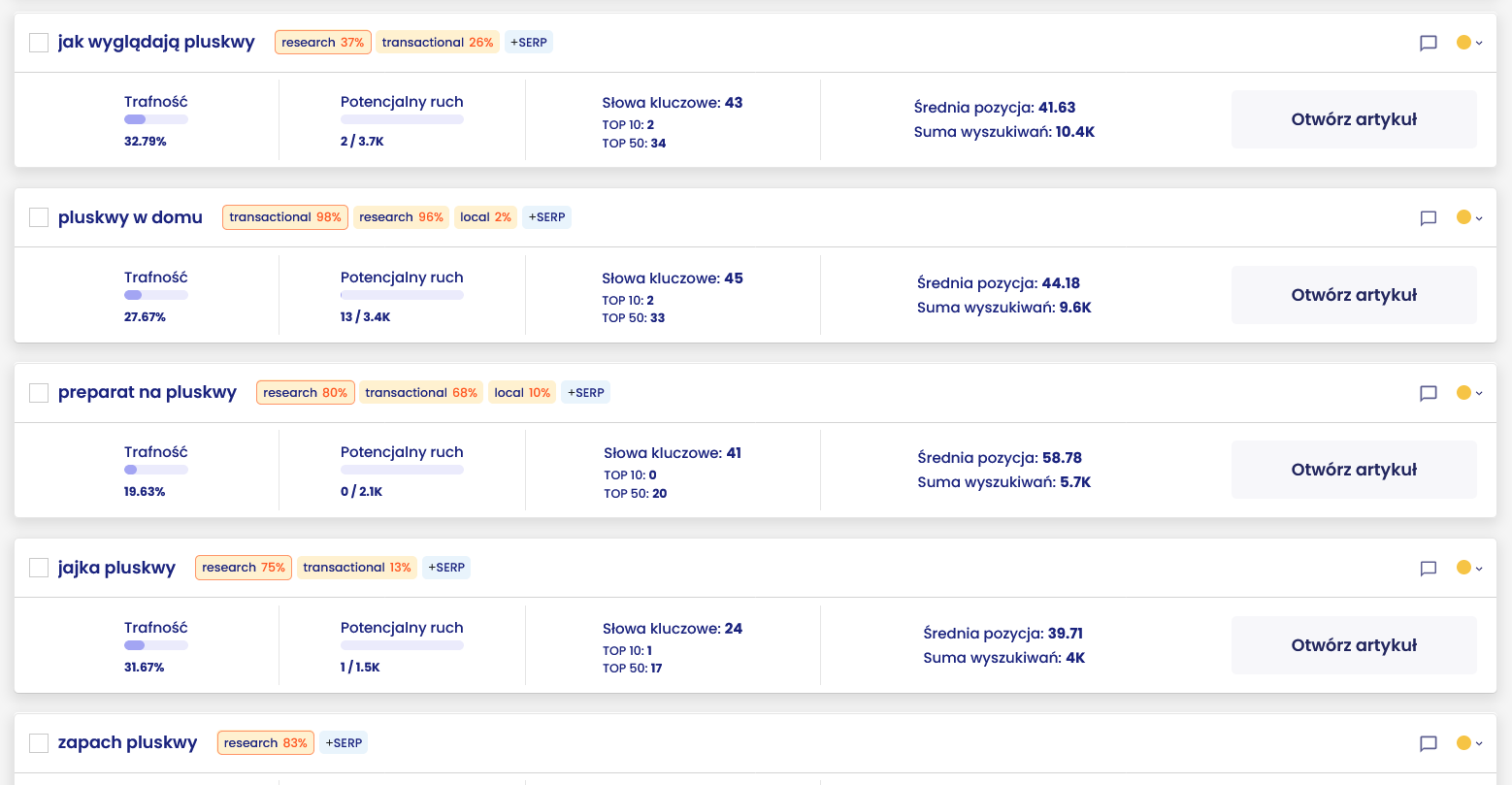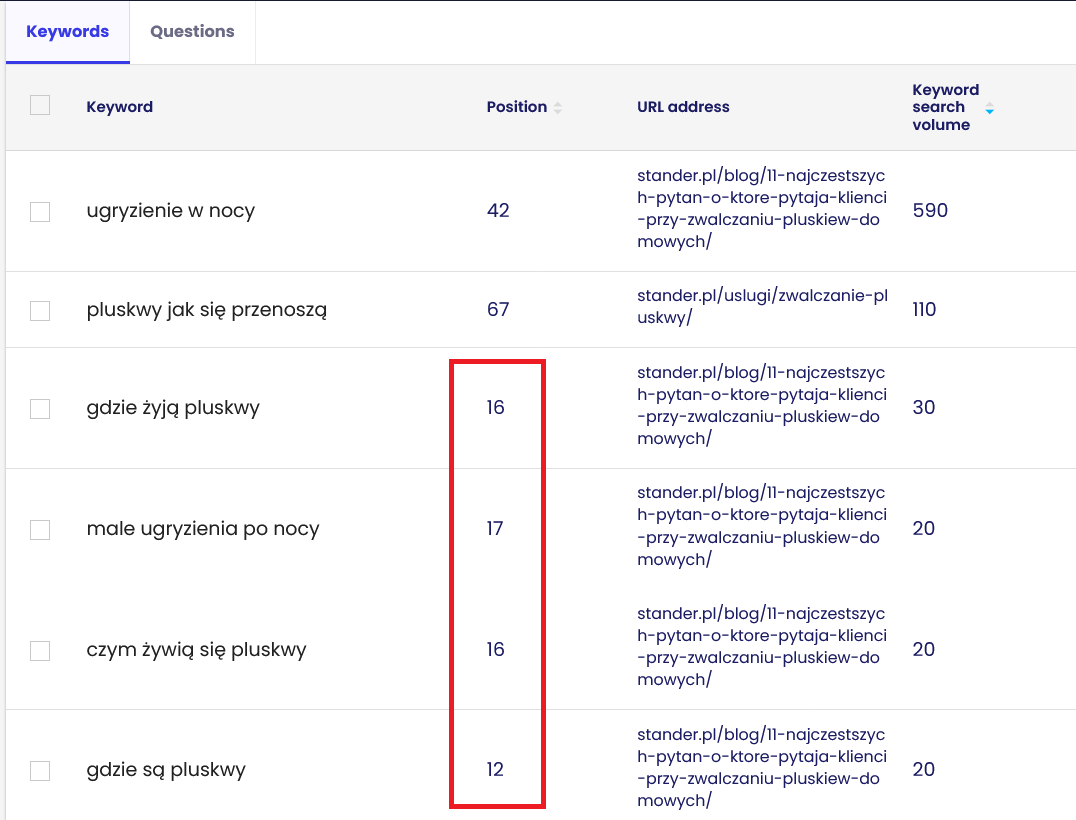Why do you need a content plan? Briefly: because with its help it will be easier for you to achieve high rankings in Google. However, I point out that when I say content plan, I don’t mean a simple schedule for publishing more texts. Because it is less important when you publish something and in what order. Much more important is what content you include in this plan.
Before we get into specifics, let’s consider one question: does every site owner need a content plan?
Well, not necessarily.
When do you not need a content plan?
.
When you own a site/business that relies primarily on social media instead of relying on traffic from Google.
Your natural habitat is Facebook or Instagram. That’s where your fan base is, and stubbornly, you can even get by without your own site, since you post all your key content on your social profiles. And, for example, affiliate links to your partners’ products, from which money flows into your account.
So you can be an influencer or blogger, independent of organic traffic (but dependent on what happens on your socials).
You may be running a niche store that has no chance of top positions on Google anyway, so you reach customers through other channels.
In such cases, a content plan can be an addition to your work – but not necessarily the basis of it. You can set a strategy and a publication schedule, but you can do without them, too.
You communicate with fans/customers on an ongoing basis and according to how you feel at the moment. You share inspirations that would even be difficult to encapsulate within some broader plan.
So a content plan is not a key tool for all creators and business owners.
But for many it is.
Here’s why you need a content plan .
.
Topical authority is one of the most important concepts in semantic SEO. Anyone who creates content with high search engine rankings in mind should understand this concept.
.
A site with high topical authority is one where the user will find expertise in a given topic and fulfill his or her search intent to the fullest extent possible.
How does Google know which sites actually contain comprehensive knowledge and answer the user’s intent?
In simple terms, the search engine’s algorithms can recognize the context of information and make logical connections between topics. Based on this, they determine the extent to which the content on a page covers a given topic.
For site owners, this means that the better the topic coverage, the greater the chance of high rankings in Google.
Since one issue is always described by a range of key phrases, high topical authority means that one page can rank high for many different queries on Google – related to that issue, of course.
Since we’ve recalled the theory, I’ll venture a conclusion: if you’re aiming for high search engine rankings, you’ll do well to tightly cover the key issues on your site.
This is what a content plan will help you do.
A good content plan is not just a publication schedule, along the lines of: today I’ll publish text X, next week text Y, and in two weeks text Z.
A good content plan, focused on SEO, takes into account the publication of content that will successively build the expertise of the site.
For example, if one is interested in the topic of bed bug control, it is not enough to write a long article with the phrase “bed bug control” and its variations repeated many times (this is an outdated way of thinking about SEO).
In order for our site to be considered expert (and shown higher in search results), we need a content plan that takes into account many related topics.

.
Screen from Senuto’s Content Planner module
By describing these issues one by one and skillfully linking articles between each other, we are actually giving the user everything he or she might be interested in on the topic of bed bug control.
And then Google is most likely to find such a person worth referring just to our site – and not necessarily to a competitor’s site.
2. A good content plan will help you get targeted
.
It’s not that going for high topical authority we have to write absolutely every thing there is to write about a topic. And that’s fortunate.
The key to understanding what and how much we should write is the intentions related to the issues at hand – and at the same time to our business, blog or site in general: the site we run.
You need to determine for what purpose a user should visit your site, and then help them fulfill that purpose. The means to do this is, of course, published content.
.
.

Example of blended intent – screen capture from Senuto’s Content Planner module
Intentions are encapsulated in the queries that your potential customer/visitor types into Google. If they coincide with the keywords on your site and the context in which they are used, chances are they will come to you for the answer.
So when creating a content plan, think about intent. A different user need is defined by the topic “intel and radeon comparison” (informational), and another by “asus with radeon processor” (transactional).
Intuitively, you probably know what content your ideal visitor might be interested in. Creating a content plan backed by research helps you sort out those hunches, verify them and turn them into strong targeting.
This, in turn, means discarding some of the article ideas that may be substantive, but not necessarily aligned with intent – and focusing on the content that makes the most business sense.
3. You’ll get more out of already existing content
.
Classic content plan thinking involves creating more and more content.
What if I told you that you may already have good content on your site that just needs polishing?
If that were the case, it would mean for you that in addition to commissioning or writing new content all the time, your content plan should also include optimization of already published texts.
Focus especially on so-called quick wins – articles that rank just outside the top ten search results for selected phrases.

.
The phrases in the second ten search results show what you should optimize on your site first. Screen from Senuto’s Content Planner module.
Put a little extra work into them – such as supplementing with additional keywords – and you may soon find that they make it to the first page of Google. That means more traffic for you.
Summary
.
You can publish content without a content plan and still get results on Google – especially when you do solid competitive research and write with user intent in mind.
A good content plan, on the other hand, increases the likelihood of those results showing up. It brings order and structure to your work and helps your site grow day by day, month by month.
If you don’t have the tools to create advanced and highly effective content plans with which to build topical authority, at least think about basic research and an Excel table.
Even a minimalist plan is better than no plan when you think about writing content for SEO
.
 Wojciech Maroszek
Wojciech Maroszek